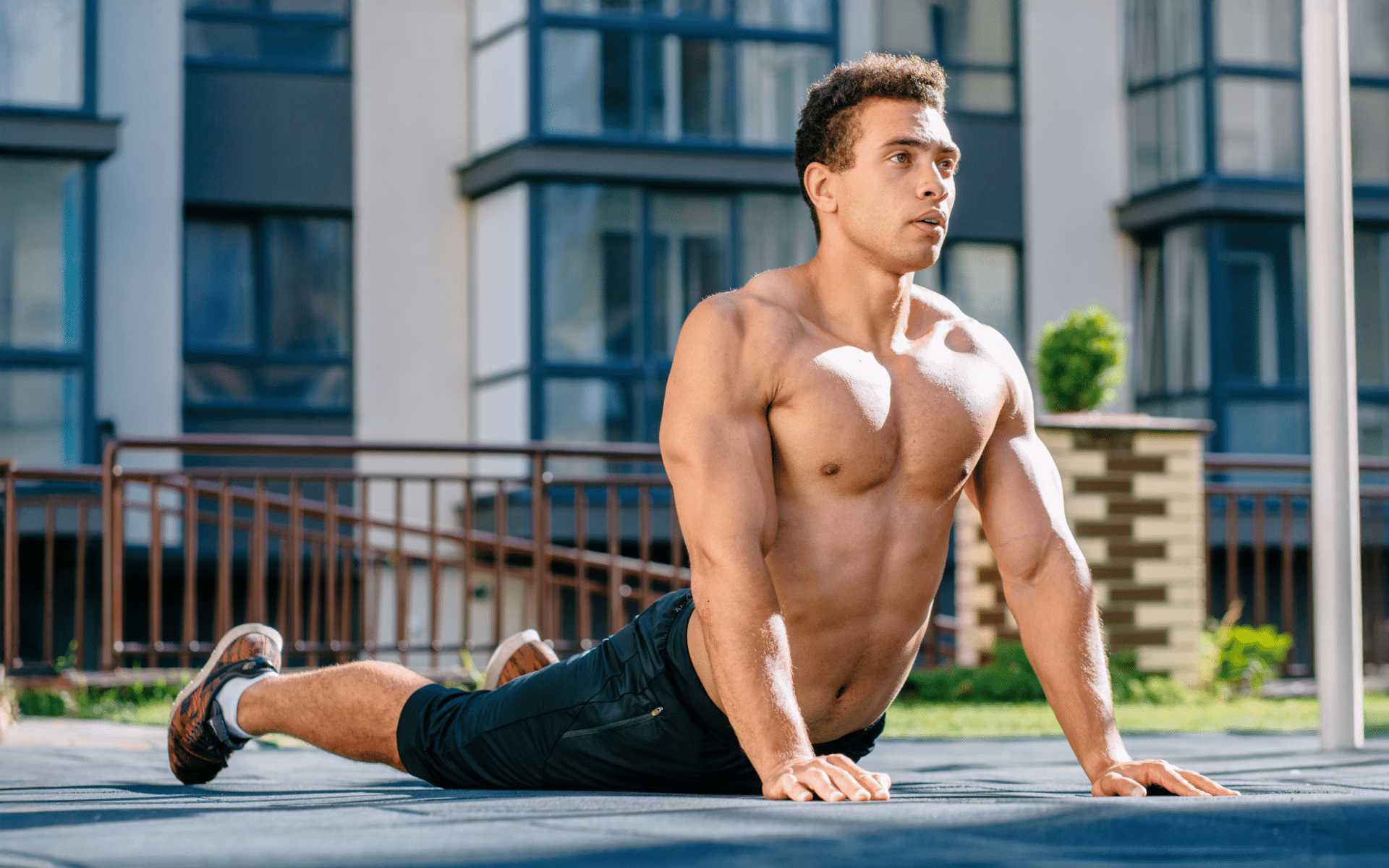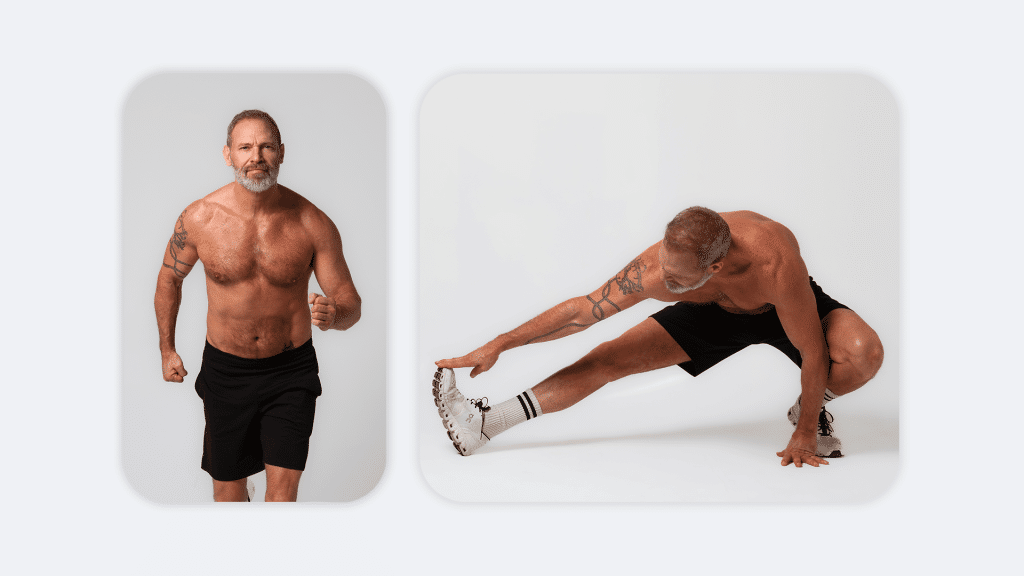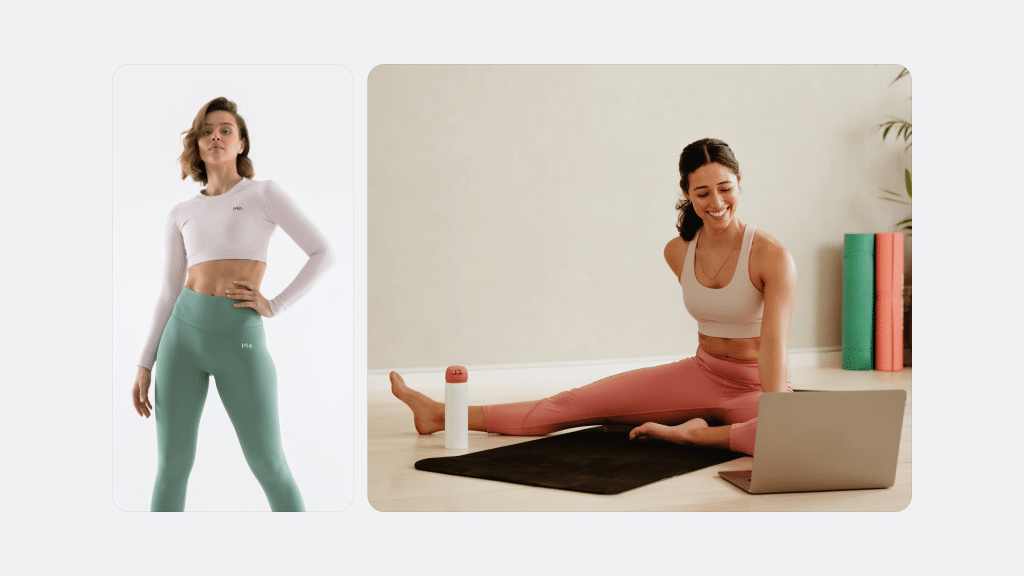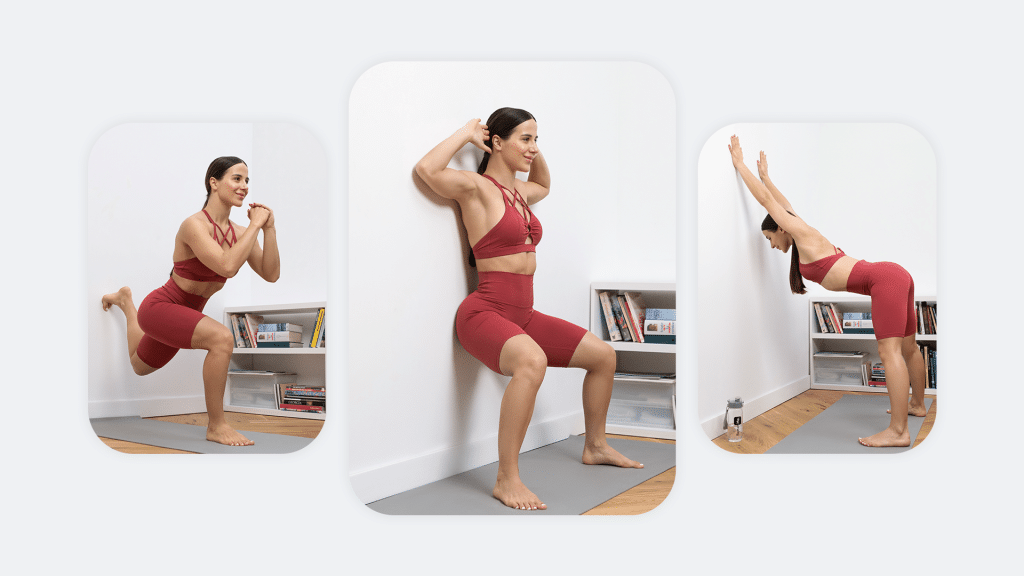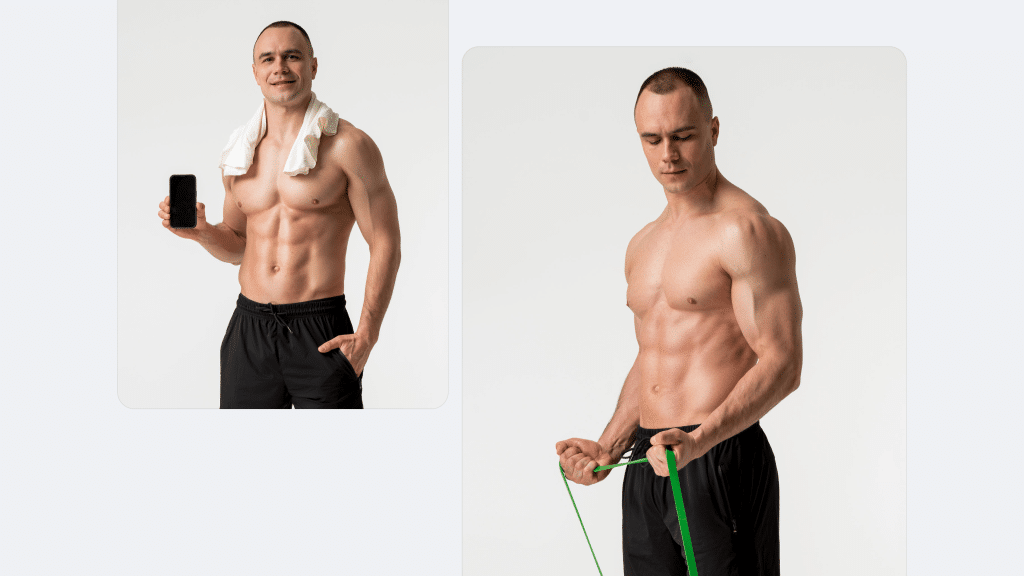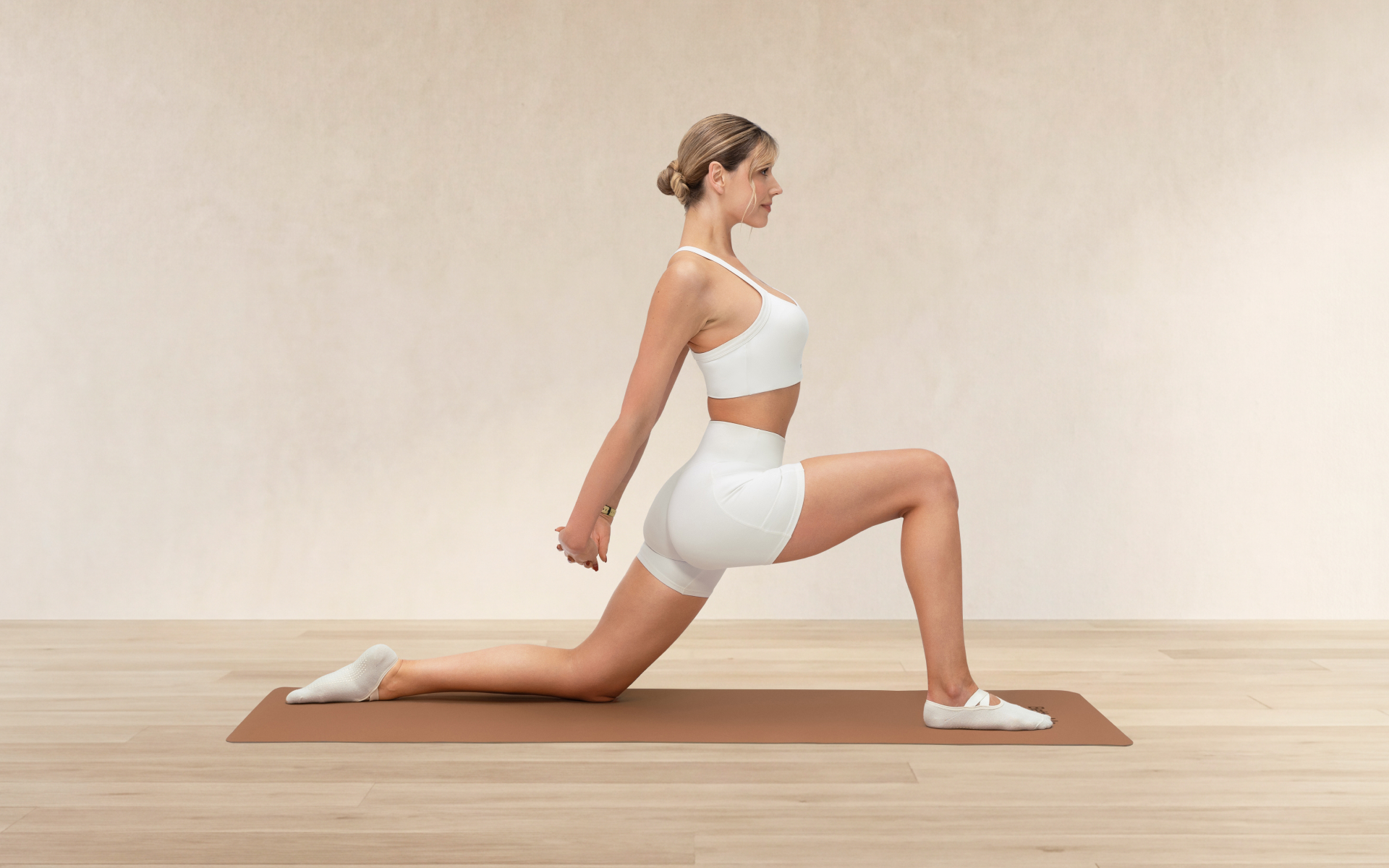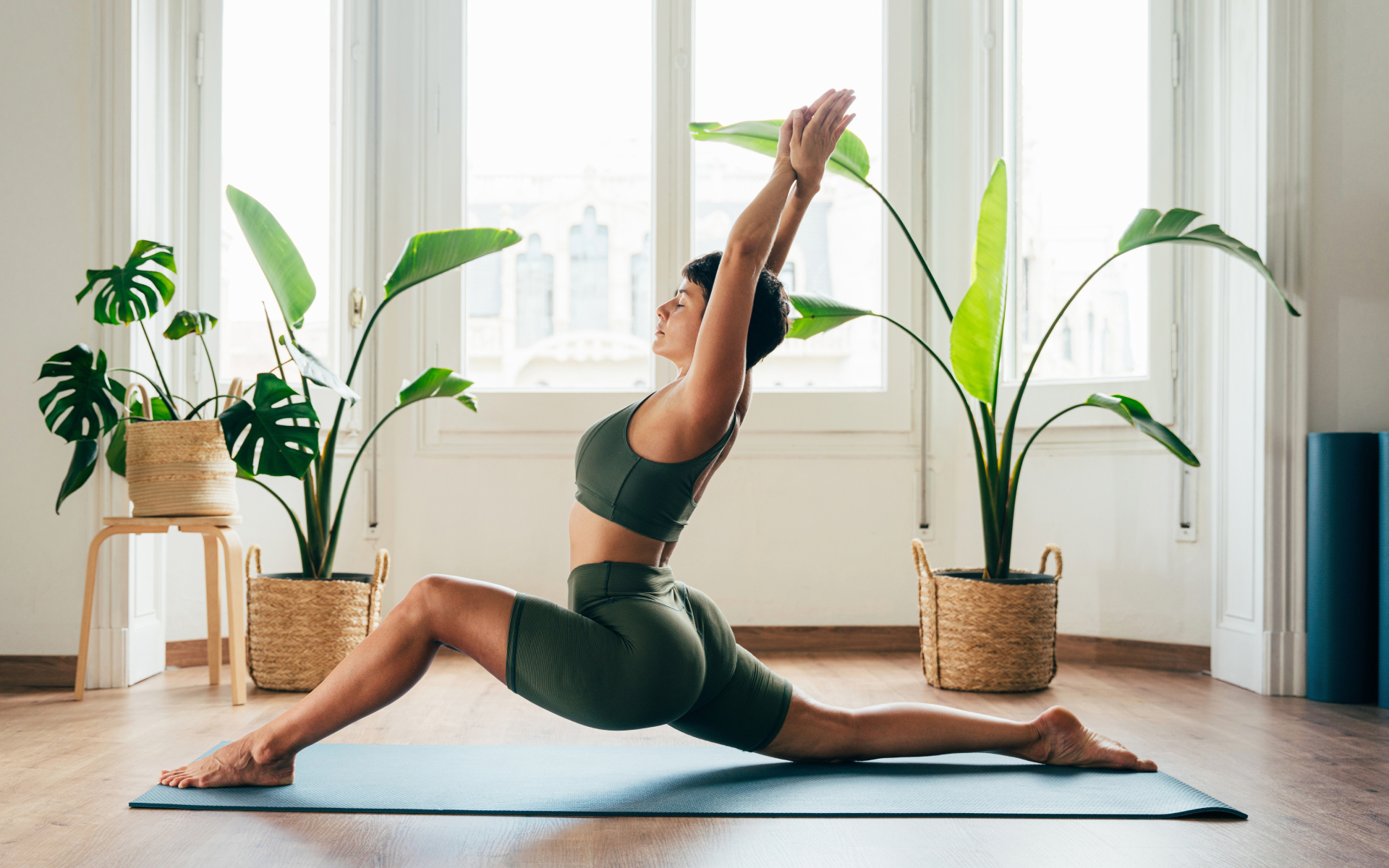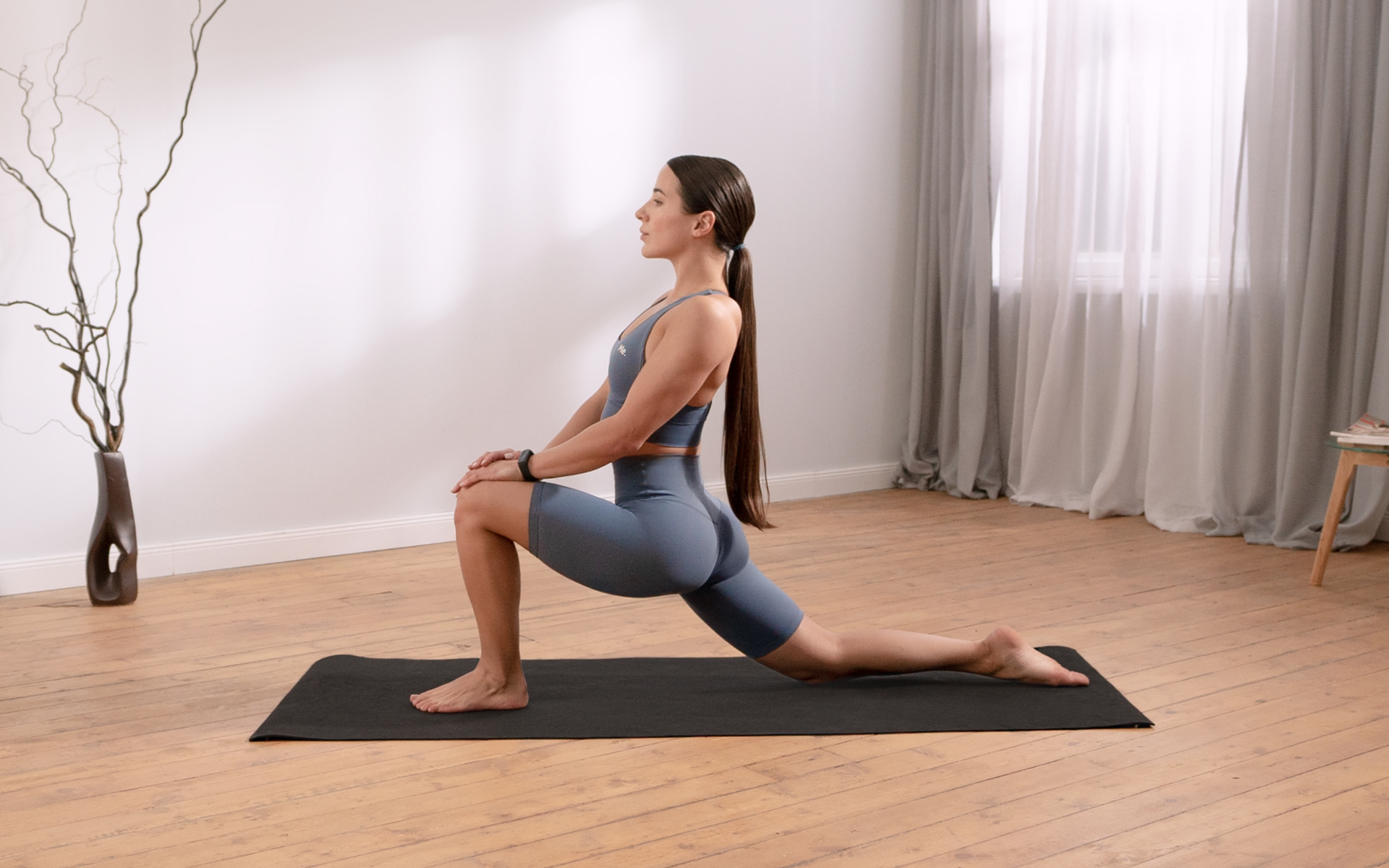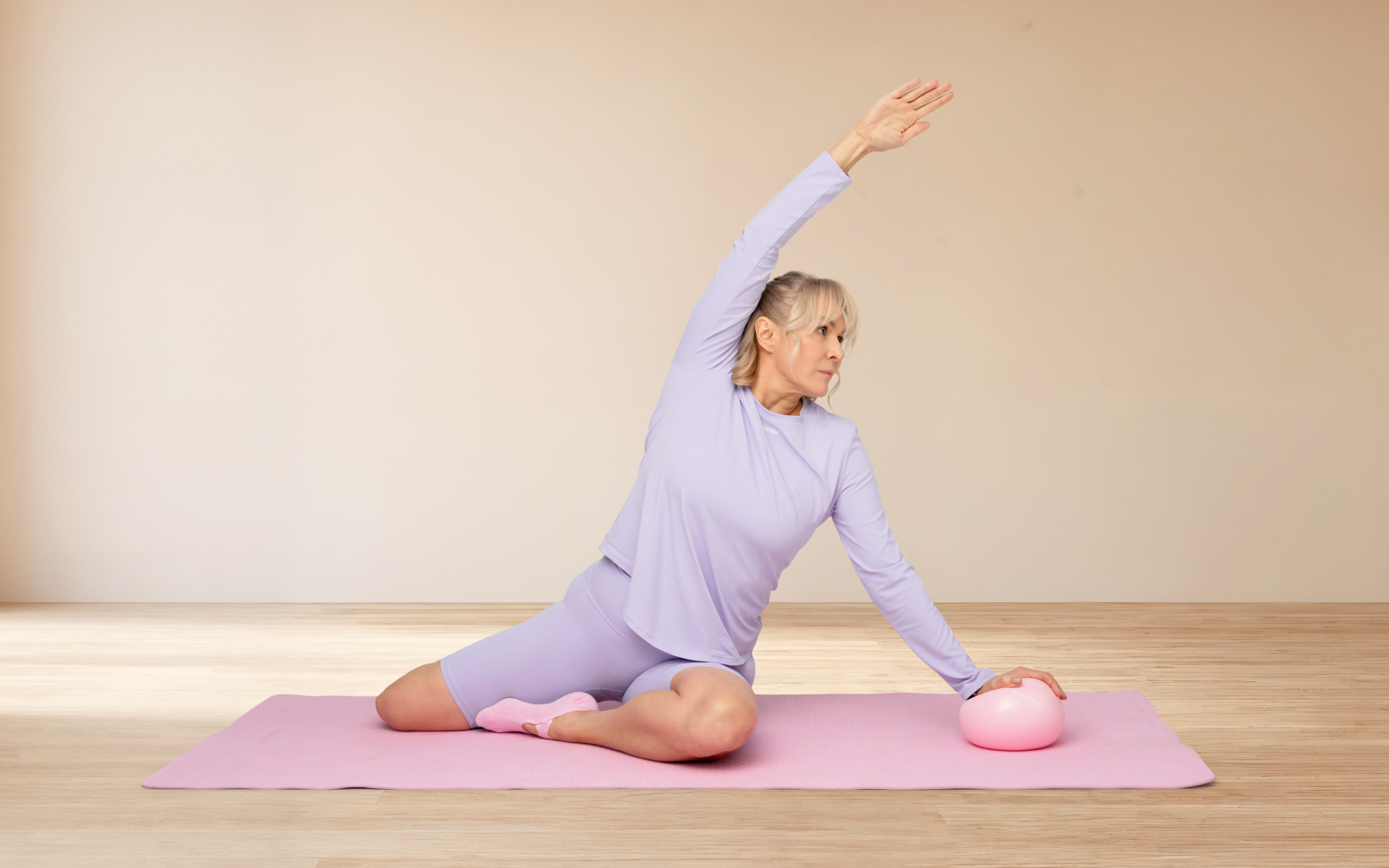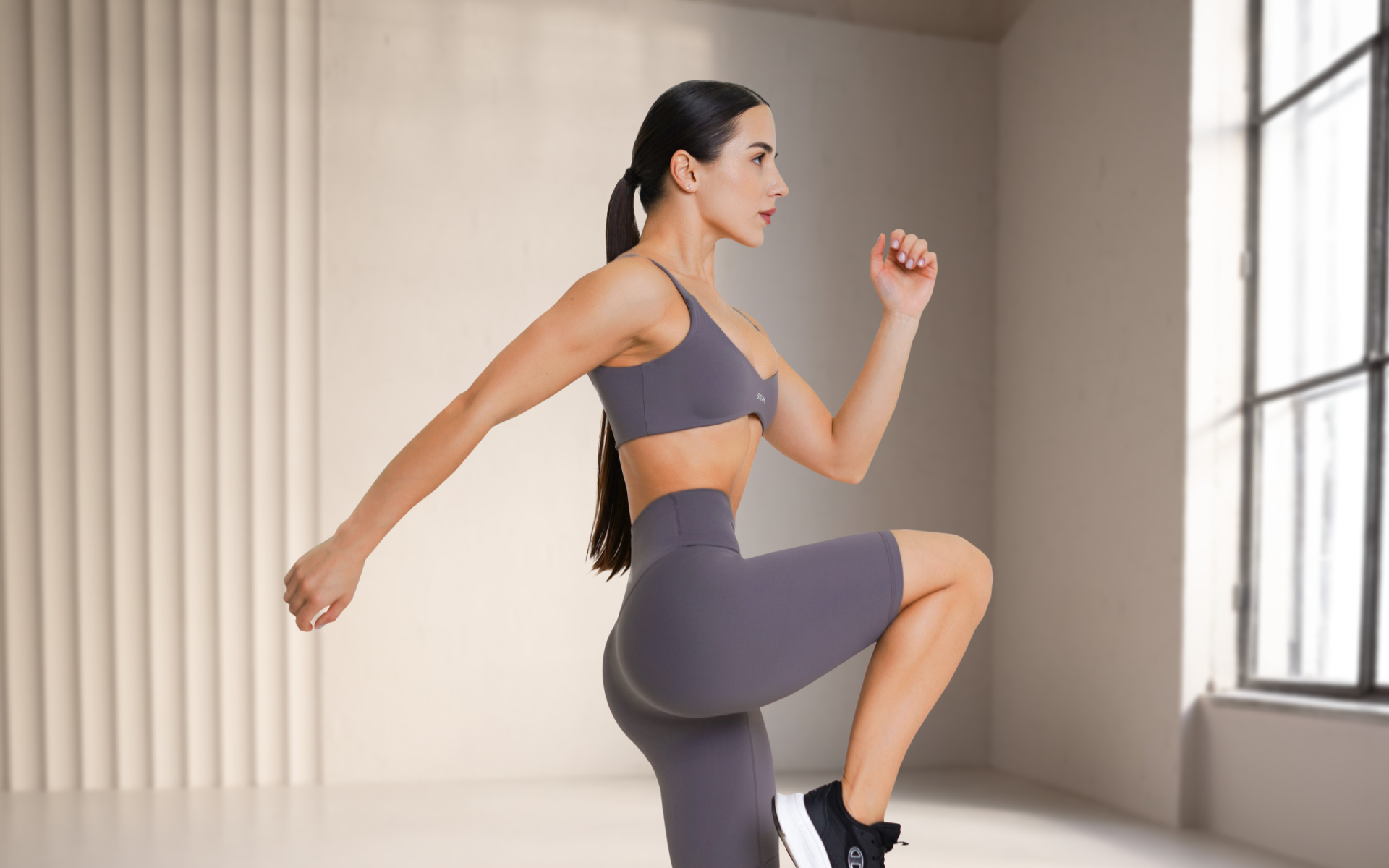Many people think that Pilates is just for women and that it is “not an actual sport.” You might perceive the practice to lack intense movements that build muscle and strength. But that’s only a misconception.
The reality is that there are various benefits of Pilates for men. Not only is Pilates good for boosting movement efficiency, flexibility, stability, and strength, but it can also help you master your mind over your body. The workouts can improve total body awareness.
Joseph Pilates was the man who invented this practice. He knew its value as he initially developed the system of Pilates exercises to improve his health, posture, and core strength stability. (1.)
Here is a quick look at the science behind Pilates for men.
What Are the Benefits of Pilates for Men?
Pilates can develop a man’s muscles that become neglected over time due to:
- Aging
- Inactivity
- Poor Nutrition
- Health Issues (i.e.: Myositis) (2.)
- Stress and Mental Health
- Not engaging in activities that target deep stabilizing muscles (3.)
Men often have more muscle mass in their upper body, particularly in the trunk area, which can lead to relative weakness in the pelvis, spine, and lower limbs.
Pilates is a progressive exercise focusing on core strength, flexibility, and overall muscle balance.
It can help men build muscle mass, improve mobility, and enhance flexibility, addressing these imbalances effectively. (4.) (5.)
Men can improve their bowel and bladder control by strengthening the pelvic area. Regular practice might aid sexual dysfunction since pilates activates the pelvic floor muscles. Here is a more detailed list of the benefits of Pilates for men. (6.) (7.) (8.)
-
Better Core Musculature
Pilates targets the deep muscles of the pelvis, abdomen, and lower back. It can lengthen and strengthen the muscles.
A recent trial studied the effect of Pilates on core stability in male and female patients who recovered from COVID-19. Based on the results, Pilates enhanced core muscle strength and alleviated discomfort. It also improved trunk balance, movement, and quality of life. (9.)
-
Stronger Pelvic Floor
Pilates can stabilize a weak pelvic floor.
This holistic approach can’t work in all cases of Erectile Dysfunction (ED). However, it can enhance circulation, curb obesity, and aid cardiovascular function to protect against erectile dysfunction. (10.)
Regular workouts ensure that you consistently work on your pelvic muscles, which can improve muscle control and overall pelvic health.
This routine practice may help with continence as you age and curb back pain. (11.)
-
Pain Relief
Pilates can help relieve lower back, shoulder, and neck pain and contribute to improved quality of life with consistent practice. (12.)
Every sequence uses breathing techniques and mindful movement to calm the central nervous system. It can reduce the sensation of pain over time.
Additionally, Pilates enhances blood circulation, delivering more nutrients and oxygen to the tissues, which can speed up recovery from soreness or injury. (13.)
The benefits of Pilates for men at home or in the gym begin with gentle movements and gradual progress to more advanced exercises. (14.)
-
Improved Movement Efficiency
Pilates is a balancing act. It requires adequate tension, breathing, and positioning.
This form of body conditioning can help you maintain and regain mobility. Strong and flexible muscles provide more efficient movement in day-to-day tasks. You can exercise or stand still with less fatigue.
One study found that Pilates training helped improve physical parameters such as agility, balance, and power in athletes. It may be effective in improving hip and core stability. (15.)
BetterMe: Health Coaching app helps you achieve your body goals with ease and efficiency by helping to choose proper meal plans and effective workouts. Start using our app and you will see good results in a short time.
-
Build Muscle Mass
Pilates can build muscle. After all, it includes strength training as one of its primary benefits. It can strengthen the muscles of the lower body, upper body, and abdomen.
One of the most impactful benefits of Pilates for men is that it can improve overall coordination and balance.
Traditional weight training will typically yield better muscle strength and hypertrophy results when programmed well and can also be more helpful in targeting specific, isolated muscle groups.
Pilates and weight training can provide a well-rounded approach to boosting muscle growth while maintaining optimal alignment, flexibility, and posture. (16.)
-
Reduced Risk of Injury
This targeted approach can make you more flexible, an essential component of overall mobility, and reduce the risk of injury.
Men tend to benefit from having adequate strength in these core muscles:
- Hips
- Glutes
- Pelvic floor
- Lumbar muscles
- Abdominal muscles (17.)
These muscle groups are essential for proper postural control, body positioning during lifting and carrying objects, and many basic tasks of daily living.
Building strength for daily tasks also decreases the risk of injury.
Multiple studies suggest a Pilates program improves standing balance and reduces fall risk. It can be a potential holistic approach for improving functional mobility, gait, and postural stability. (18)
Read more: Is Pilates Cardio or Strength Training?
-
Better Posture
Contrary to outdated medical advice and the general media, no posture is inherently “good” or “bad.”
Research has shown that postural variability is the most important factor for reduction in posture-related pain, injury, and dysfunction. Therefore, no modality or form of exercise can help you achieve “good” posture since there is no such thing.
However, postural awareness, control, and stability are all improvable factors that Pilates and other exercises and education focus on. These factors contribute to preventing prolonged postures that may lead to problems. (19)
Don’t know where to start? Here are Easy Wall Pilates Exercises You Can Master in a Day.
-
Breathe More Fully
Pilates can help you breathe better. It can strengthen the respiratory muscles and optimize oxygen efficiency.
You take in slow, deep breaths to fully expand the lungs.
This inhalation increases the volume of air the lungs can hold. Breath control encourages more oxygen to reach the bloodstream. As you exhale, you stretch, which can produce a calming effect. (20.)
Studies show that eight weeks of Pilates can improve respiratory and lung function. It can improve pulmonary function and boost quality of life. (21.)
-
Build Muscle Endurance
As you advance your practice, you will likely experience improved muscular and cardiovascular endurance, essential attributes for independence, performance of physical tasks, and quality of life.
What Does Pilates Do to a Male Body?
Consistent Pilates practice offers men numerous benefits for both physical and mental health. Pilates emphasizes core strength, which includes the muscles of the abdomen, lower back, hips, and glutes, as well as improved stability of the trunk and extremities.
Regular Pilates practice may also improve flexibility, coordination, and balance, which can help men enhance athletic performance and stay physically independent into their older years.
These improvements can lead to reduced injury risk, not to mention the numerous mental health benefits that come with it.
A male Pilates body transformation’s before and after results are inspiring. While Pilates may not drastically increase muscle size like traditional resistance training, it can help men maintain a lean and healthy physique.
Men’s Pilates for beginners is a great way to support healthy joints.
The controlled movements stretch isolated muscles and may stimulate synovial fluid production. This production of synovial fluid lubricates and nourishes the joints, reducing friction and wear. (22.)
Mental and physical energy levels tend to increase.
The male mind can feel sharper and more alert. During Pilates sessions, this sharpening happens through cognitive function improvement, mindfulness, and precision techniques. (23.)
Does Pilates Change Your Physique?
Pilates changes the male body in different ways. It can build strength without bulk, promote weight loss, and improve postural awareness. You can use it to get better muscle definition and enhance core strength.
The sessions work with your entire core, from the pelvis to the lower back muscles and abdomen. You work up a sweat and burn calories. You engage your deep core muscles and involve your back, sides, and legs.
Reformer machines create intensity and resistance, making it easier to sculpt the body. (24.)
Veiny arms can occur with low body fat and increased muscle mass.
Due to its therapeutic nature, Pilates can work great to rehabilitate injuries. It can speed up the natural healing process and manage muscular imbalances.
The benefits of pilates for men’s weight loss and body composition changes happen when you consider these factors:
- A calorie deficit is crucial for weight loss.
- Weight loss can range from 1 to 2 pounds per week.
- Physical changes may take 4 to 6 weeks to become noticeable.
- Patience and consistency are essential for weight loss and physical change rates (25.)
Read more at Pilates 101: Everything You Need to Know Before Starting a Class.
Can Men Lose Weight Doing Pilates?
Pilates may not be the fastest way to lose weight for men, but can be a practical component of a well-rounded weight loss plan. One-hour sessions can help you burn about 170 to 250 calories. It can also help you get into a calorie deficit to lose weight.
Combining this holistic approach with a balanced diet and other healthy lifestyle factors can help you achieve or maintain a healthy body composition.
One study looked into the benefits of Pilates for mens’ weight loss. The results showed this approach can aid in drastically reducing body weight, body fat, and BMI in obese and overweight individuals. (26.)
Pilates gives all parts of your body an equal measure of movement. For example, Reformer’s Pilates exercises use resistance for improved muscular recruitment.
This movement can increase:
- Muscle fiber size
- Boost blood flow
- Increase basal metabolic rate (BMR)
The higher the BMR, the more calories you burn throughout the day at rest.
Are you trying to get healthier, lose weight, or gain muscle? The BetterMe app is a comprehensive solution, offering nutrition plans, progress tracking, and various workouts. The app can help transform your physique and approach to a healthier lifestyle. You can use it to count calories and create delicious meals.
The BetterMe: Health Coaching app will provide you with a host of fat-frying fitness routines that’ll scare the extra pounds away and turn your body into a masterpiece! Get your life moving in the right direction with BetterMe!
Can Pilates Give You Abs?
A common saying is, “Abs are made in the kitchen.” Despite this being overly simplified, it is, for the most part, accurate. The saying implies that the visibility of your abdominal muscles is more reliant on your nutritional choices than on your exercise choices.
Many people with very high muscle mass do not have visible abdominal musculature because their body fat percentage, or simply their body fat distribution, prevents them from having “six-pack abs.”
While Pilates can improve muscle mass of the rectus abdominis and increase caloric expenditure to an extent, it (and any other form of exercise) cannot “give you abs” alone. If you want visible abs, you must maintain a healthy body fat percentage, for which diet is crucial. (27.)
How Often Should Men Do Pilates
You may need at least 2 to 3 weekly classes to see results.
A session usually lasts 30 to 60 minutes. After you master the Pilates basics, you can notice a big difference in the first 3 months. Your strength and flexibility can increase, your posture can change, and you can feel more energetic.
Practicing Pilates for men 3 times weekly for an hour can provide consistent results, assuming you are progressing the difficulty of your practice as you get in better shape.
Is Yoga or Pilates Better for Men?
There are numerous benefits of Pilates for women and men, just as there are with yoga. Neither practice is inherently better or worse than the other, but which is better for you depends on your goals and personal preferences. Both practices offer unique benefits and can complement each other (and other forms of exercise) very well.
Yoga is a centuries-old practice that originated in India and encompasses physical, mental, and spiritual elements. It focuses on flexibility, balance, and mindfulness through poses and breathing techniques.
Yoga can help reduce stress, improve mental clarity, and enhance overall well-being. There are various styles of yoga, ranging from the gentle and restorative to the more vigorous and physically demanding.
On the other hand, Pilates was developed in the early 20th century by Joseph Pilates as a method of rehabilitation and strengthening. It emphasizes core strength, stability, and controlled movements.
Ultimately, the choice between yoga and Pilates comes down to what you are looking to achieve. Yoga might be better if you seek a holistic approach combining physical exercise with mental and spiritual growth.
Pilates might be your style if you focus on building core strength and stability with a low-impact exercise. There is nothing wrong with incorporating some of each into your fitness regimen to experience a wider range of benefits!
Should I Choose Pilates or Weight Training?
It depends on personal preference and fitness goals. You might prefer Pilates due to its low-impact nature. It could be a practical choice if you haven’t been active.
Even minor movements can target specific muscle groups and engage the core. You can modify the moves based on your skill level.
Pilates is gentle on the joints, can support your posture, and minimize the risk of injury. It is a versatile approach that uses breath control and mindfulness. It can be a great building block for flexibility and rehabilitation. After a couple of weeks of practice, you may find it easier to return to the gym. You may experience less fatigue between workouts.
Weight training burns a lot more calories and builds endurance and strength. You use precise movements that require some strength and previous muscle mass. It can boost bone density, enhance metabolic rate, and lower abdominal fat.
Choose either exercise type or try incorporating both into your workout routine!
Although no form of exercise can spot-reduce fat in any area of your body, Pilates can contribute to an overall weight loss regimen that can lead to reduced body fat, including belly fat. Remember, diet is the most critical factor in reducing body fat. Pilates and other forms of exercise help increase caloric expenditure, creating the caloric deficit you need for fat loss. Getting fit depends on your definition of “fit” and the consistency, intensity, and structure of your training. Any exercise can make you “fit” if your goal relates to that form of exercise and you apply proper progressive overload, volume, and frequency. Pilates is neither better nor worse than traditional cardiovascular training methods. Whether it is better for you depends on your goals and preferences. Some people wonder why pilates is better than gyms, but there is no competition here. Whether or not Pilates can replace the gym depends on your fitness goals. Many individuals have successfully utilized Pilates as their primary form of training and can get in great shape and reach their fitness goals. On the other hand, many people do not do Pilates at all and can achieve their fitness goals equally. Many Pilates classes occur at the gym, so you may need a gym to do these exercises as a group. Find what form of training you enjoy and stay consistent! Frequently Asked Questions
Does Pilates reduce belly fat?
Can you get fit with only Pilates?
Is Pilates better than cardio?
Can Pilates replace a gym?
The Bottom Line
Just because the majority of people who do Pilates tend to be women, it doesn’t mean it is only for women. Pilates is a practical and versatile exercise for everyone. It offers many perks from better strength, flexibility, and movement quality, to pain relief and postural control improvements.
Pilates takes control, precision, consistency, and hard work to achieve maximum results. So, take a deep breath, exhale, and focus on your form.
DISCLAIMER:
This article is intended for general informational purposes only and does not serve to address individual circumstances. It is not a substitute for professional advice or help and should not be relied on for making any kind of decision-making. Any action taken as a direct or indirect result of the information in this article is entirely at your own risk and is your sole responsibility.
BetterMe, its content staff, and its medical advisors accept no responsibility for inaccuracies, errors, misstatements, inconsistencies, or omissions and specifically disclaim any liability, loss or risk, personal, professional or otherwise, which may be incurred as a consequence, directly or indirectly, of the use and/or application of any content.
You should always seek the advice of your physician or other qualified health provider with any questions you may have regarding a medical condition or your specific situation. Never disregard professional medical advice or delay seeking it because of BetterMe content. If you suspect or think you may have a medical emergency, call your doctor.
SOURCES:
- The History Of Joseph Pilates – How Pilates Became A World Renowned Form Of Exercise (2024, pilatesdigest.com)
- Myositis (2023, orthoinfo.aaos.org)
- Muscle Weakness Causes and Treatment (2024, verywellhealth.com)
- Women have stronger legs and other side-effects of human body proportions (2023, onlinelibrary.wiley.com)
- Do Men Do Pilates? Yup! Here’s What You’re Missing Out On (2021, greatist.com)
- Is pilates as effective as conventional pelvic floor muscle exercises in the conservative treatment of post-prostatectomy urinary incontinence? A randomized controlled trial (2016, ncbi.nlm.nih.gov)
- Physical Activity to Improve Erectile Function: A Systematic Review of Intervention Studies (2018, ncbi.nlm.nih.gov)
- Effects of Pilates Training on Lumbo-Pelvic Stability and Flexibility (2011, ncbi.nlm.nih.gov)
- Effects of Pilates Exercises on Core Stability After Recovery from COVID-19: A Randomized Controlled Trial (2024, ncbi.nlm.nih.gov)
- Do erectile dysfunction exercises help? (2024, medicalnewstoday.com)
- Effect of Pilates combined with pelvic floor muscle training on continence of post-prostatectomy incontinence in patients with different body mass index (2024, ncbi.nlm.nih.gov)
- Efficacy of Pilates on Pain, Functional Disorders and Quality of Life in Patients with Chronic Low Back Pain: A Systematic Review and Meta-Analysis (2023, ncbi.nlm.nih.gov)
- Pilates 101: What It Is and Health Benefits (2023, health.clevelandclinic.org)
- Pilates for Men: It’s Not Just for Ballerinas Anymore (2021, healthline.com)
- How Pilates Exercises Affect Sports Performance: A Systematic Review (2023, researchgate.net)
- Pilates vs Weight Training: Everything You Need to Know About Building Strength (n.d., pilatesbridge.com)
- 11 Benefits of a Strong Core (2022, healthline.com)
- Pilates Reducing Falls Risk Factors in Healthy Older Adults: A Systematic Review and Meta-Analysis (2021, ncbi.nlm.nih.gov)
- Postural variability: an effective way to reduce musculoskeletal discomfort in office work. (2014, ncbi.nlm.nih.gov)
- Research: Why Breathing Is So Effective at Reducing Stress (2020, hbr.org)
- Eight Weeks of Pilates Training Improves Respiratory Measures in People With a History of COVID-19: A Preliminary Study (2023, ncbi.nlm.nih.gov)
- 7 Ways Pilates Keeps Aging Bodies Moving (2021, basipilates.com)
- Pilates Precision: Enhancing Mind-Body Connection (n.d., americansportandfitness.com)
- The Best Pilates Machines for Your Home Gym (2022, menshealth.com)
- Pilates 101: Everything You Need to Know Before Starting a Class (2024, betterme.world)
- Pilates for Overweight or Obesity: A Meta-Analysis (2021, ncbi.nlm.nih.gov)
- Can You See Sculpted Abs If You Have a Low Body Fat Percentage? (2021, healthline.com)
